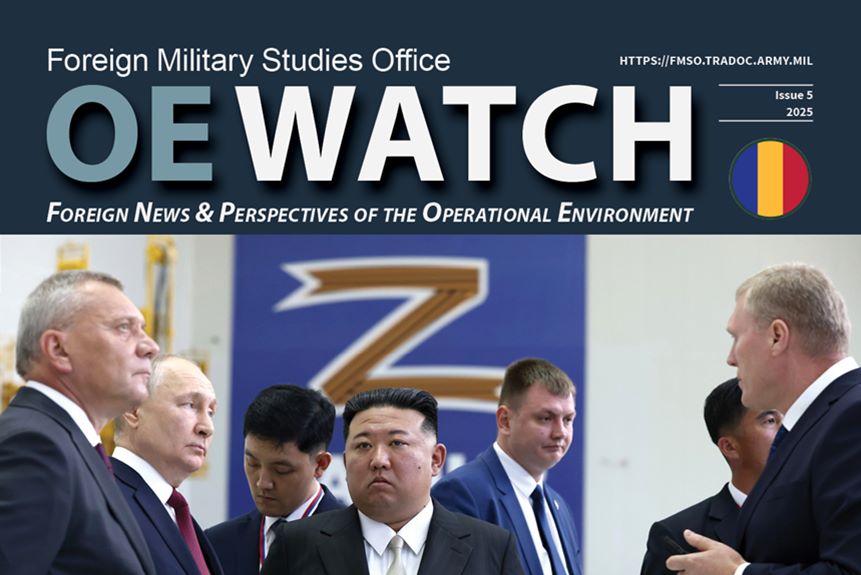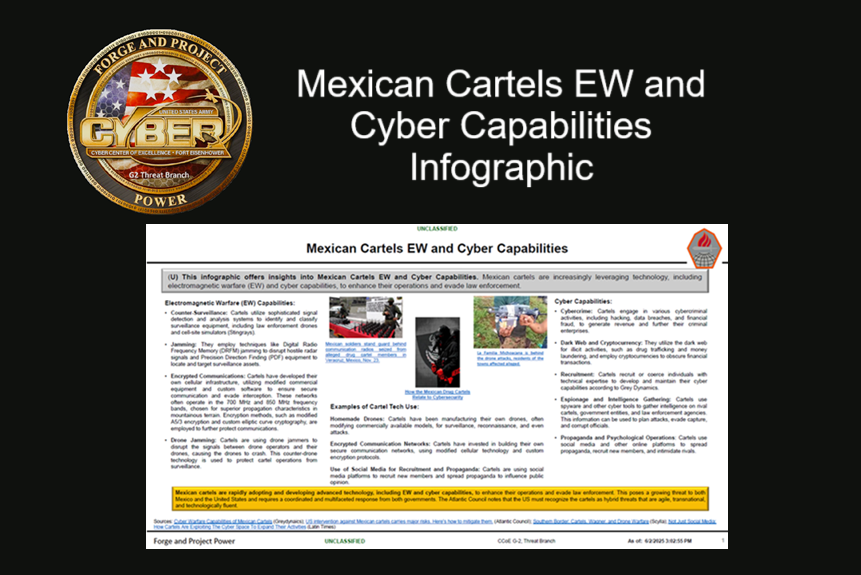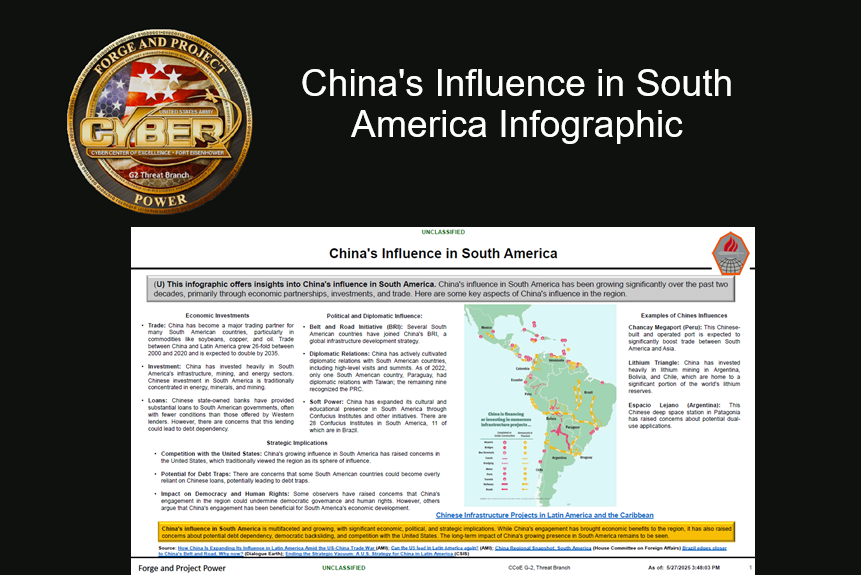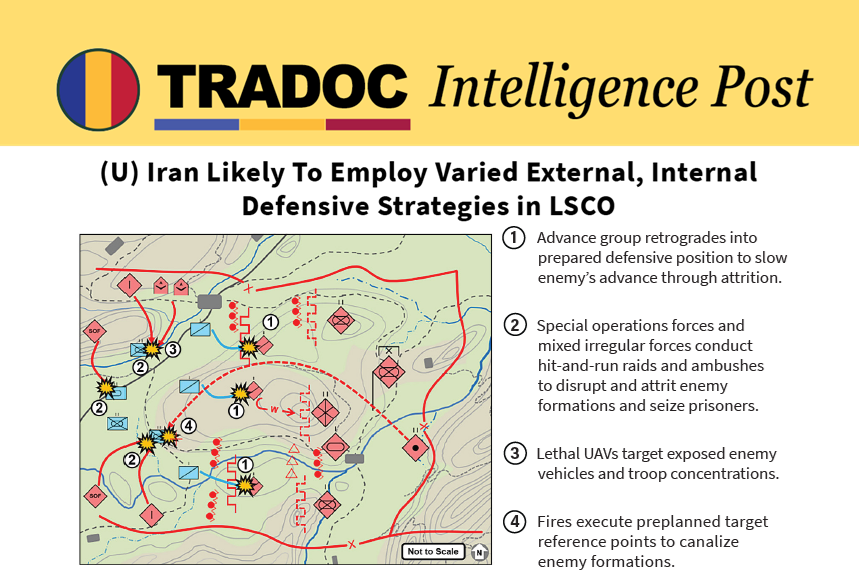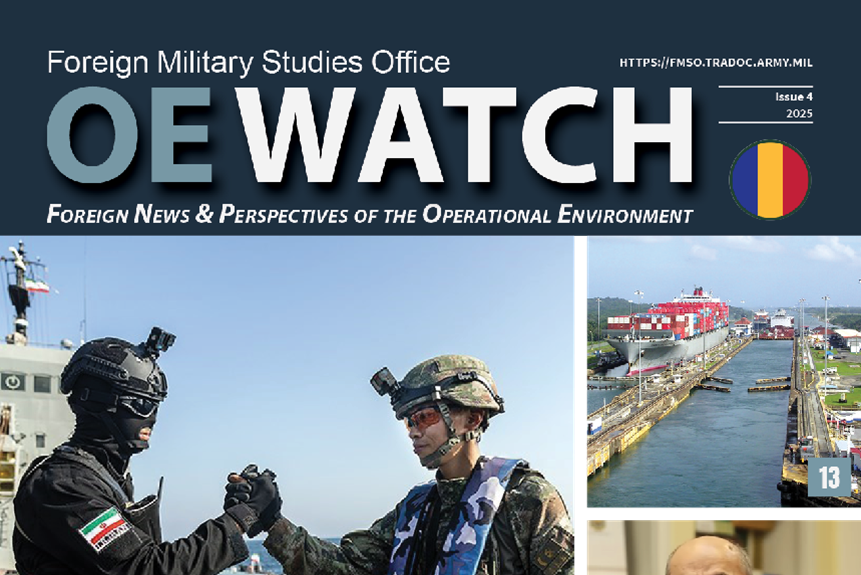PRODUCTS
Check out TRADOC G-2’s contribution to Military Review, The Army’s Training Environment…
Type: PDF
Page Count: 9
Page Count: 9
The OE Watch provides translated selections with background from a diverse range…
Type: PDF
Page Count: 47
Page Count: 47
TRADOC G-2 briefing on the “The Pacific Security Environment” presented during the…
Type: PDF
Page Count: 4
Page Count: 4
This infographic offers insights into Mexican Cartels EW and Cyber Capabilities. Mexican…
Type: PDF
Page Count: 1
Page Count: 1
This infographic offers insights into China’s influence in South America. China’s influence…
Type: PDF
Page Count: 1
Page Count: 1
This intelligence post examines Iran’s forward defense and mosaic defense strategies, highlighting…
Type: PDF
Page Count: 5
Page Count: 5
In December 2024, Ukraine’s 13th KHARTIIA Ukrainian National Guard Brigade, known as…
Type: DOCX
Page Count: 4
Page Count: 4





